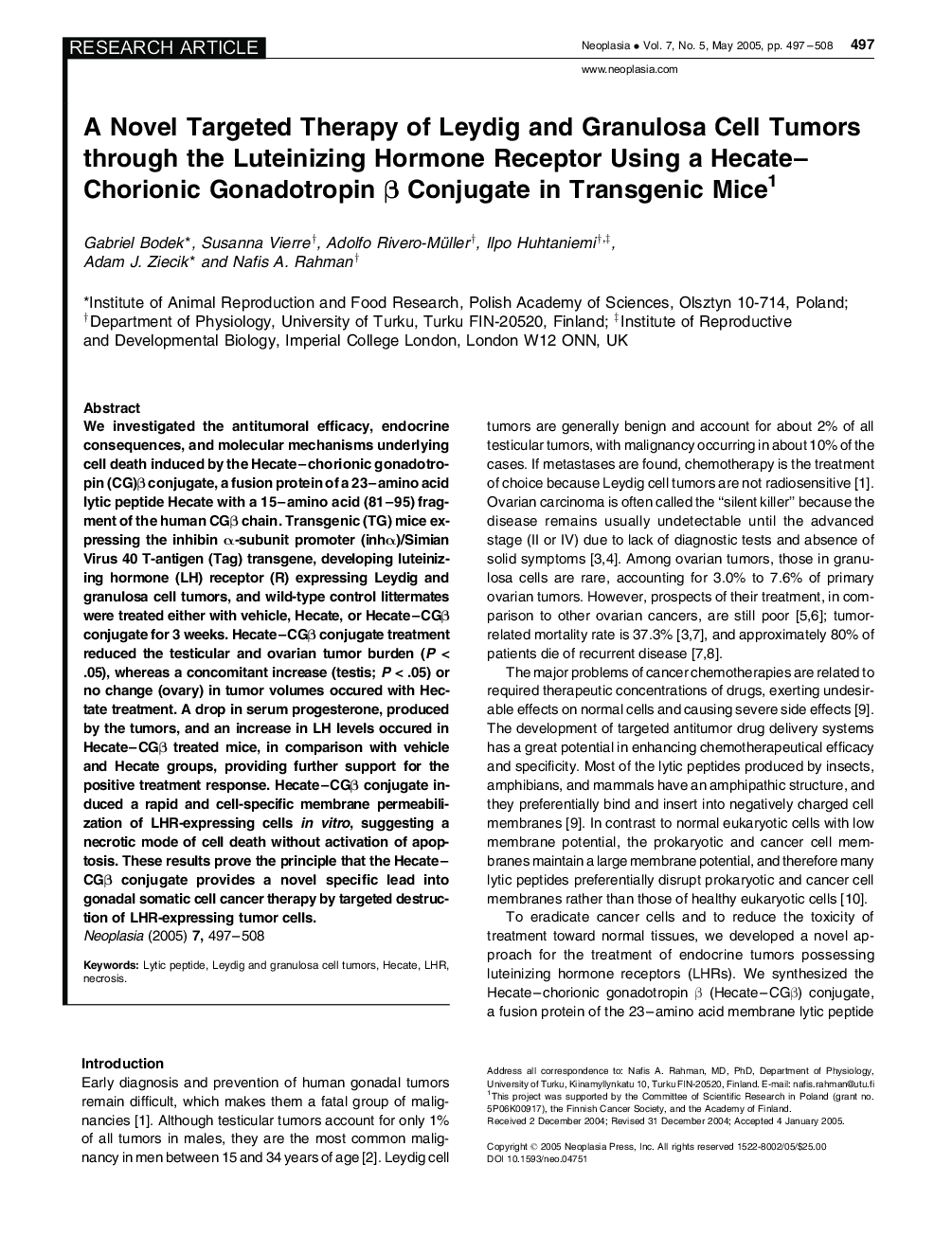| Article ID | Journal | Published Year | Pages | File Type |
|---|---|---|---|---|
| 10915545 | Neoplasia | 2005 | 12 Pages |
Abstract
We investigated the antitumoral efficacy, endocrine consequences, and molecular mechanisms underlying cell death induced by the Hecate-chorionic gonadotropin (CG)β conjugate, a fusion protein of a 23-amino acid lytic peptide Hecate with a 15-amino acid (81-95) fragment of the human CGβ chain. Transgenic (TG) mice expressing the inhibin α-subunit promoter (inhα)/Simian Virus 40 T-antigen (Tag) transgene, developing luteinizing hormone (LH) receptor (R) expressing Leydig and granulosa cell tumors, and wild-type control littermates were treated either with vehicle, Hecate, or Hecate-CGβ conjugate for 3 weeks. Hecate-CGβ conjugate treatment reduced the testicular and ovarian tumor burden (P < .05), whereas a concomitant increase (testis; P < .05) or no change (ovary) in tumor volumes occured with Hectate treatment. A drop in serum progesterone, produced by the tumors, and an increase in LH levels occured in Hecate-CGβ treated mice, in comparison with vehicle and Hecate groups, providing further support for the positive treatment response. Hecate-CGβ conjugate induced a rapid and cell-specific membrane permeabilization of LHR-expressing cells in vitro, suggesting a necrotic mode of cell death without activation of apoptosis. These results prove the principle that the Hecate-CGβ conjugate provides a novel specific lead into gonadal somatic cell cancer therapy by targeted destruction of LHR-expressing tumor cells.
Keywords
Related Topics
Life Sciences
Biochemistry, Genetics and Molecular Biology
Cancer Research
Authors
Gabriel Bodek, Susanna Vierre, Adolfo Rivero-Müller, Ilpo Huhtaniemi, Adam J. Ziecik, Nafis A. Rahman,
